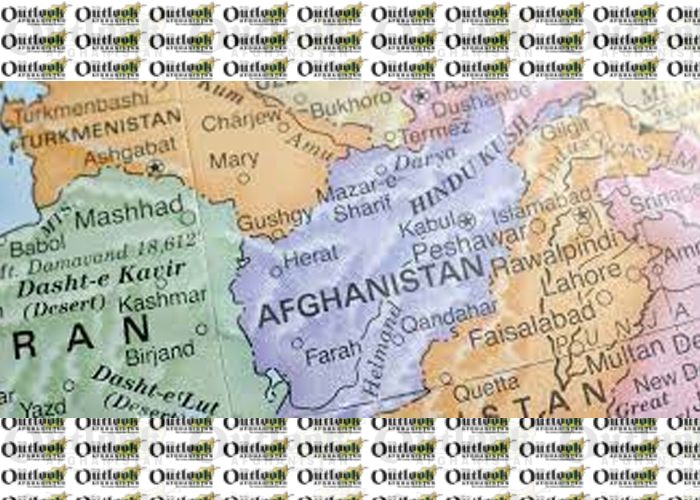Home » Opinion » The Role and Policy of Regional Countries in Post-US Afghanistan
The Role and Policy of Regional Countries in Post-US Afghanistan
| Mohammad Zahir Akbari

Following the US decision to withdraw from Afghanistan, this country is entering a new phase of its political changes and challenges. These changes and challenges can be categorized at two different levels: national and international. At the national level, the country is in witness of rapid advances of Taliban with violent and cruel approaches that resulted in uncountable displacements, waves of migrations, people’s movements, and so forth. At the international level, it seems that the regional and international players have just commenced re-evaluating their assumptions, priorities, and strategies about Afghanistan. In the latest cases, the US and Iran showed their new position about Afghanistan. Last night, President Joe bidden has once again stressed withdrawing from Afghanistan. In spite of opposition to his decision inside and outside of the US, he reaffirmed to withdraw all his troops from Afghanistan by 9/11 while promising to continue assisting the government and people of Afghanistan.
In the contrast, the Iranian politicians have taken a more friendly tone to the Taliban’s deeds and advances hosting the Taliban delegation and saying they were proud of being beside their Afghan brothers against foreign occupants. in addition, Unlike usual expectations from Iran about its Shia crescent strategy, earlier one of the Iranian politicians in the clubhouse had also said the Taliban’s behavior has changed and they are advancing in Afghanistan under the framework of law of war while the Taliban never desisted from the killing of armed and civilians and ignition of the homes and properties yet. In response to an audience’s question that why Iran is leaving alone its Shia fellow in Afghanistan, the same individual had said that the Taliban are not against Shia but against Hazaras while the absolute majority of Shia in Afghanistan is formed by Hazaras. These expressions have confused many Afghans as if those Hazaras who were repeatedly victimized in the west of Kabul were not Shia. These expressions and stances show that the western neighbor of Afghanistan has changed its strategy against the Taliban in the post-US-Afghanistan, especially after recent Taliban Advances.
Other regional countries such as Russia, China, and India have not formally announced their new policies about Afghanistan. Previously, most of these countries including Iran have pursued opportunistic strategies except India that played an effective role in the last two decades in Afghanistan. Therefore, the position and strategy of India seem more determining and more important for the people of Afghanistan. The position of India is important because it is considered one of the close allies and friends of the Afghan government and people. In the last twenty years, India invested billions of Dollars in Afghanistan through implementing big and effective projects such as the construction of parliament and India-Afghanistan Friendship Dam [Salma Dam], Shatoot dam, and so forth. As a result, Afghans have a good memory from India and so believing that friendships between the two countries have been strong, unlimited, and stable and can be mentioned as a good example in the region and also at the world level. More importantly, the new position of India is imperative because there has been a long competition between India and strategic supporters of the Taliban in the region.
Given the high position of India in the past, now the main question is what would be the new strategy of India about post-US Afghanistan? Some local analysts believe that India is faced with a dilemma whether to preserve its two-decades-old investment in a democratic order in Afghanistan or to join the chorus of those who see the future in the Taliban’s victory? So, it seems that the New Delhi has to make a tough decision because each type of policies has serious implications for India with associated risk costs and benefits. Pursuing its old policy would compel Delhi to leave its safe corner that allowed India to have a comfortable developmental partnership with the Afghan State. The ideal condition for India would be a political settlement in which the Taliban become a non-violent political stakeholder in a democratic constitutional order. The South Asian pillar of such a settlement can be best described by former Prime Minister of India when he had said that ‘Breakfast in Kabul, lunch in Lahore and Dinner in Delhi’. In such a perspective, only the UN can play a leading role, including in filling the emerging security vacuum by deploying its peacekeeping mission for Afghanistan. A UN peacekeeping mission in Afghanistan can bring together Pakistan and India in preventing the country’s slide toward anarchy and State breakdown.
The next options for India are to follow the same opportunistic policies as other regional countries or entirely abandon Afghanistan; an option similar to the Tibet situation when in December 1962, New Delhi closed its consulate general in Lhasa, in the aftermath of its war with China. This seems carrying great weight when we combined it with Indian actions that India has already shut some of its in Afghanistan. This strategy is probably because there is no area of sympathy between the Islamic Emirate of Taliban and India in case of its domination on the country. However, reaching this dream would not be an easy job for the Taliban. The Taliban will not only face diverse alliances of resistance because of its monopolistic policies but also because of it medieval ideology which in contrast to the soul of modern era. Therefore, the best option for all stakeholders is to follow a comprehensive and win-win strategy to end the conflicts from Afghanistan and also from the interconnected region.
